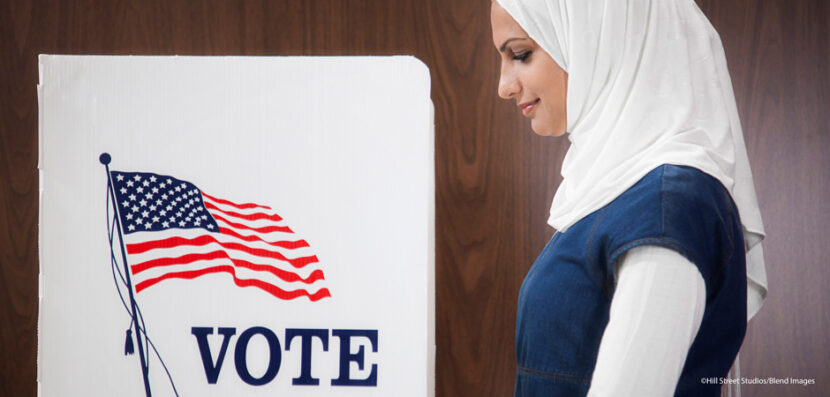Tlaib Wins Surprise Victory in Primary
Last week, Election Central brought you the story of the extremely close special election in Ohio’s 12th Congressional District. But Ohio wasn’t the only state with an important election last week. In Michigan’s 13th District, a woman named Rashida Tlaib won the Democratic primary. Here, Election Central takes a look at who Tlaib is and why her victory is so significant.
Who Is Rashida Tlaib?
The eldest daughter of Palestinian immigrants, 42-year-old Tlaib is a mother of two, a public interest attorney, and a former Michigan state legislator–in fact, she was the first Muslim woman elected to the Michigan state legislature. This year, she is running for Congress in Michigan’s 13th District, to replace the seat vacated by Representative John Conyers, Jr. Conyers resigned after allegations of sexual misconduct. Last week, Tlaib won her primary election contest to become the Democratic candidate on the November ballot. Importantly, she will be running unopposed. And even more importantly, if she wins, she will become the first Muslim woman elected to Congress.
A Progressive Campaign
In order to win her primary, Tlaib had to beat out an impressive pool of fellow Democrats, including Ian Conyers (grandnephew of John Conyers, Jr.) and Brenda Jones, the president of Detroit’s City Council. The Democratic Party backed Jones. She had the endorsements of Detroit’s mayor, four of her fellow council members, local pastors, and the labor unions.
Tlaib, on the other hand, considers herself unapologetically progressive and ran a campaign to the left of Jones. (In 2016, Tlaib was detained by the police for confronting then-candidate Trump at a campaign rally.) Her endorsements came from groups such as People for Bernie and Justice for Democrats, as well as filmmaker Michael Moore. Yet Tlaib still managed to out-fundraise her opponents and bring home a win.
It’s a story that has played out again and again in Democratic primaries and special elections since 2016: the struggle between established Democrats who are more connected to the national party structure and their (usually younger) more progressive counterparts. This divide was clearly seen in 2016 as Democrats decided whether Bernie Sanders or Hillary Clinton would be the party’s presidential candidate. It was also exhibited recently when political newcomer Alexandria Ocasio-Cortez defeated an established Democrat in her New York primary last month. The fact that so many progressive candidates are winning over more centrist counterparts suggests that in a post-Trump world, many Democrats are ready and eager to accept progressive change.
Looking Ahead
Because she won’t have an opponent in the general election, it is almost a certainty that Tlaib will win her district’s Congressional seat. She has pledged to fight Trump’s agenda, especially his so-called “Muslim travel ban,” which she believes to be racist and un-American. Tlaib has also emphasized the social significance of her victory, saying that her win signifies to the Muslim community that they do indeed belong in the United States. And this is a message that many are ready to hear: more than ninety Muslim Americans will be running in elections this November.



